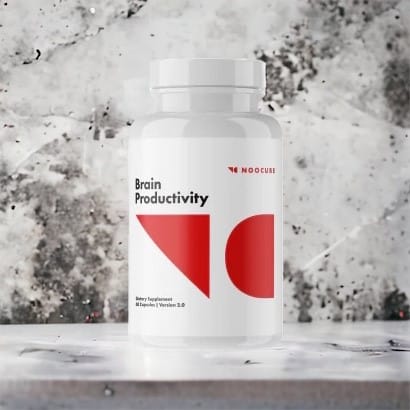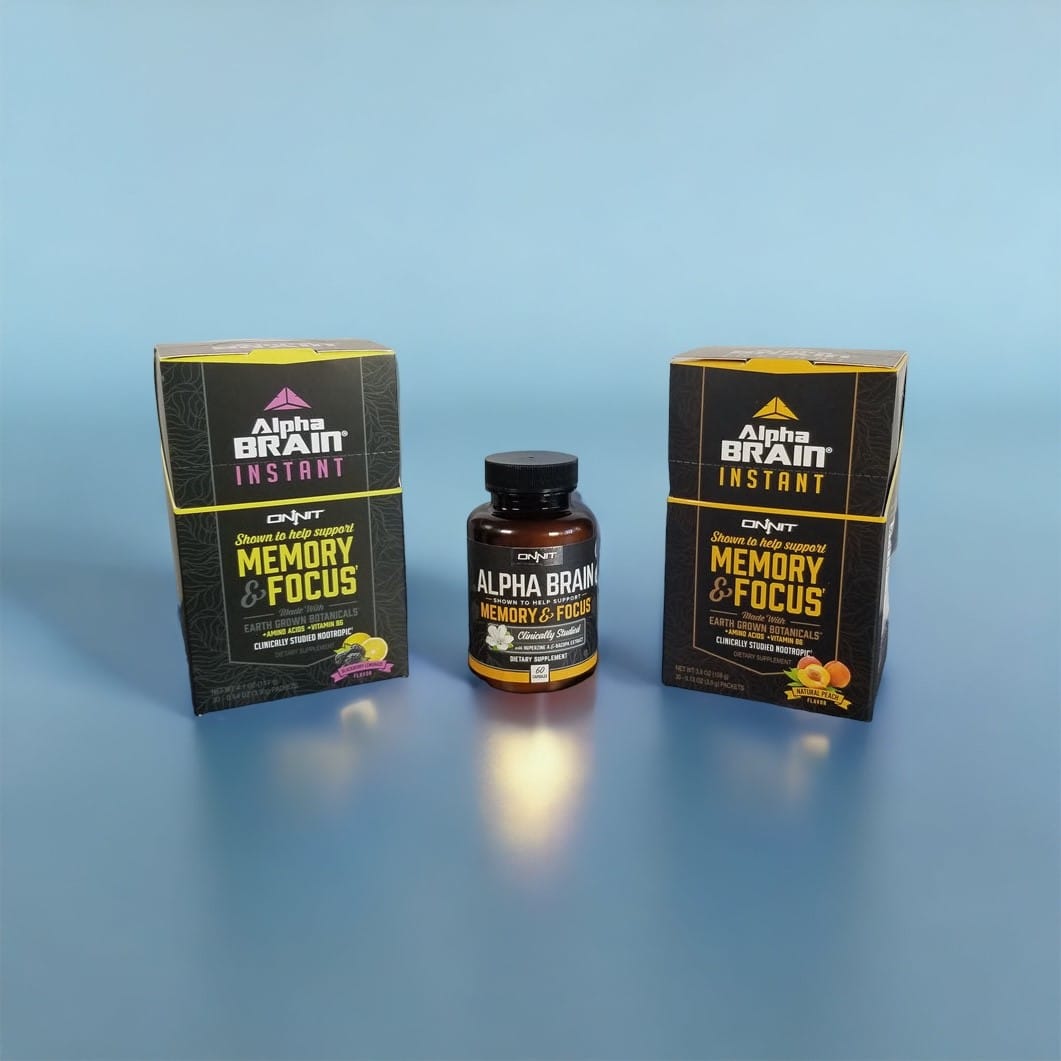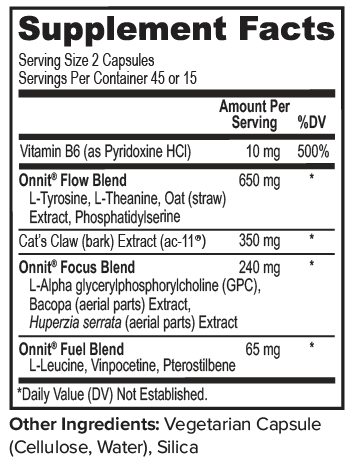Alpha Brain Side Effects
While many individuals have experienced positive results, it's essential to consider the potential side effects before starting any new supplement regimen. In this article, we'll delve into the various ingredients found in Alpha Brain and discuss their potential negative impacts on your health.

Common side effects experienced with Joe Rogan's Alpha Brain
Alpha Brain, a well-known nootropic supplement produced by Onnit Labs Inc., has gained popularity for its promise to enhance cognitive functions, including memory, focus, and mental clarity. As with any supplement, understanding the potential side effects is crucial for users who are considering incorporating Alpha Brain into their daily regimen. This article aims to provide a detailed overview of Alpha Brain's side effects, drawing on scientific research, our own firsthand testing, user testimonials, and the specific ingredients that make up this cognitive enhancer.
Whether you're a long-time user or contemplating your first dose, being informed about what to expect can help you make a more educated decision regarding your cognitive health journey.
| Side Effect | Description |
|---|---|
| Headaches | Common side effect associated with Alpha GPC, L-Theanine, and Cat's Claw Extract. |
| Dizziness | Reported in individuals using Alpha GPC, L-Theanine, and Cat's Claw Extract. |
| Insomnia | Possible side effect of Alpha GPC and Phosphatidylserine. |
| Gastrointestinal issues | Diarrhea, stomach cramps, and nausea are common with Alpha GPC, Huperzia Serrata, Bacopa Monnieri, L-Tyrosine, Oat Straw Extract, Pterostilbene, and L-Leucine. |
| Bloating | May occur with Bacopa Monnieri, Oat Straw Extract, and L-Leucine. |
| Increased heart rate | Bacopa Monnieri and Huperzia Serrata may cause this side effect in some individuals. |
| Fatigue | Bacopa Monnieri and L-Tyrosine can sometimes cause tiredness. |
| Dry mouth | A potential side effect of Bacopa Monnieri. |
| Slow heart rate | Huperzia Serrata may lead to this side effect, particularly in individuals with existing heart conditions. |
| Increased blood pressure | Another potential side effect of Huperzia Serrata. |
| Difficulty breathing | Huperzia Serrata may cause this issue, especially for individuals with respiratory problems. |
| Heartburn | L-Tyrosine may lead to heartburn in some cases. |
| Joint pain | A rare side effect of L-Tyrosine. |
| Allergic reactions | Phosphatidylserine may cause skin rashes or difficulty breathing in some individuals. |
| Vomiting | Associated with Huperzia Serrata and Cat's Claw Extract. |
| Stomach pain | Pterostilbene may cause stomach discomfort. |
| Tingling sensations | Excessive Vitamin B6 intake can lead to tingling sensations in the extremities. |
| Nerve damage | High doses of Vitamin B6 may result in nerve damage in rare cases. |
| Kidney or liver damage | High doses of L-Leucine can potentially cause damage to the kidneys or liver. |
| Interaction with medications | Cat's Claw Extract and Pterostilbene may interact with certain medications, such as blood thinners, cholesterol-lowering drugs, and medications affecting the immune system. |

Best Alternative To Alpha Brain - NooCube
4.9 / 5
Unlike Alpha Brain, Noocube is formulated to improve multiple aspects of cognitive function, including memory, focus, and mental clarity. It contains a wider range of ingredients than Alpha Brain, including Panax Ginseng, L-Theanine and Bacopa Monnieri, which have been extensively studied and shown to have significant cognitive benefits.
Alpha Brain contains some promising ingredients, but it's primarily focused on energy and alertness. Overall, Noocube is a more comprehensive and evidence-based nootropic supplement.
Diagnosing the causes of Alpha Brain side effects
| Body Part | Side Effects |
|---|---|
| Head | 1. Headaches (Alpha GPC, L-Theanine, Cat's Claw Extract) 2. Dizziness (Alpha GPC, L-Theanine, Cat's Claw Extract) |
| Brain & Nervous System | 17. Tingling sensations (Excessive Vitamin B6 intake) 18. Nerve damage (High doses of Vitamin B6) |
| Sleep | 3. Insomnia (Alpha GPC, Phosphatidylserine) |
| Gastrointestinal | 4. Diarrhea, stomach cramps, and nausea (Alpha GPC, Huperzia Serrata, Bacopa Monnieri, L-Tyrosine, Oat Straw Extract, Pterostilbene, L-Leucine) 5. Bloating (Bacopa Monnieri, Oat Straw Extract, L-Leucine) 16. Stomach pain (Pterostilbene) |
| Cardiovascular | 6. Increased heart rate (Bacopa Monnieri, Huperzia Serrata) 9. Slow heart rate (Huperzia Serrata) 10. Increased blood pressure (Huperzia Serrata) |
| Respiratory | 11. Difficulty breathing (Huperzia Serrata, Phosphatidylserine allergic reactions) |
| Musculoskeletal | 12. Heartburn (L-Tyrosine) 13. Joint pain (L-Tyrosine) 19. Kidney or liver damage (High doses of L-Leucine) |
| Skin & Allergic Reactions | 14. Allergic reactions (Phosphatidylserine) |
| Mouth | 8. Dry mouth (Bacopa Monnieri) |
| General | 7. Fatigue (Bacopa Monnieri, L-Tyrosine) 15. Vomiting (Huperzia Serrata, Cat's Claw Extract) |
Has Alpha Brain Been Independently Tested?
Research Summary
Alpha Brain, a popular nootropic supplement, has garnered attention for its potential to enhance cognitive abilities such as memory, focus, and overall brain function. While many users report positive results, it's crucial to examine the scientific research behind these claims and address any shortcomings in the available evidence. In this article, we will explore some of the issues related to the research on Alpha Brain and its ingredients.
Firstly, it's important to note that the majority of studies on Alpha Brain's ingredients have been conducted on individual components, rather than the supplement as a whole. While these individual ingredients may show promise, their combined effects and potential interactions in the context of the Alpha Brain formula remain largely unexplored. As a result, it is difficult to determine how the supplement may work when these ingredients are combined in the specific formulation of Alpha Brain.
Another issue is the limited number of clinical trials that have been conducted on Alpha Brain itself. While some studies have shown improvements in cognitive function, these trials have generally been small-scale and focused on specific cognitive measures. Additionally, some of these trials have been sponsored by Onnit, the company that produces Alpha Brain, potentially raising concerns about the objectivity and reliability of the findings. Independent, large-scale, and well-designed clinical trials are necessary to establish the efficacy and safety of Alpha Brain conclusively.


Ingredient Research
Furthermore, some of the ingredients in Alpha Brain have limited scientific evidence to support their inclusion in the formula. For instance, Cat's Claw Extract (AC-11) is said to promote cellular integrity and DNA repair. However, there is a lack of reviews and conclusive evidence demonstrating the significant effects of Cat's Claw on memory and brain health. Similarly, L-Leucine, a branched-chain amino acid, is included for its supposed protein synthesis benefits, but reviews do not show specific nootropic effects like improvement in focus and mood. The inclusion of such ingredients with limited supporting evidence calls into question the overall effectiveness of the supplement.
The generalizability of the research findings is another area of concern. Many of the studies on Alpha Brain's ingredients have been conducted on specific populations, such as older adults with cognitive decline or individuals with specific neurological conditions. It is unclear whether the benefits observed in these studies would apply to healthy individuals seeking cognitive enhancement.
Further Investigation
Lastly, the potential side effects and long-term safety of Alpha Brain are areas that require further investigation. Although many of the ingredients are considered safe in recommended doses, some users have reported side effects such as headaches, dizziness, gastrointestinal issues, and sleep disturbances. Moreover, the long-term effects of using Alpha Brain remain unknown, as most studies have been conducted over short periods.

Joe Rogan's Alpha Brain Side Effects - Conclusion
While Alpha Brain may show promise as a cognitive enhancer, there are several issues with the research supporting its claims. The lack of studies on the supplement as a whole, limited evidence for some ingredients, potential conflicts of interest in sponsored research, and concerns about generalizability and long-term safety all suggest that more robust, independent research is needed. Individuals considering using Alpha Brain should weigh these issues against the potential benefits.
There are a number of more robustly tested nootropic options available. Many of these options are significantly less likely to induce any side-effects in the average user.
References
Grieb, P. (2014). Neuroprotective properties of citicoline: facts, doubts and unresolved issues. CNS Drugs, 28(3), 185-193. DOI: 10.1007/s40263-014-0144-8
Abascal, K., & Yarnell, E. (2005). Nervine herbs for treating anxiety. Alternative and Complementary Therapies, 11(6), 309-315. DOI: 10.1089/act.2005.11.309
Kongkeaw, C., Dilokthornsakul, P., Thanarangsarit, P., Limpeanchob, N., & Scholfield, C. N. (2014). Meta-analysis of randomized controlled trials on cognitive effects of Bacopa monnieri extract. Journal of Ethnopharmacology, 151(1), 528-535. DOI: 10.1016/j.jep.2013.11.008
Nobre, A. C., Rao, A., & Owen, G. N. (2008). L-theanine, a natural constituent in tea, and its effect on mental state. Asia Pacific Journal of Clinical Nutrition, 17(S1), 167-168.
Colzato, L. S., Jongkees, B. J., Sellaro, R., & Hommel, B. (2013). Working memory reloaded: Tyrosine repletes updating in the N-back task. Frontiers in Behavioral Neuroscience, 7, 200. DOI: 10.3389/fnbeh.2013.00200
Kennedy, D. O., Jackson, P. A., & Haskell, C. F. (2007). Modulation of cognitive performance following single doses of 120 mg Ginkgo biloba extract administered to healthy young volunteers. Human Psychopharmacology: Clinical and Experimental, 22(8), 559-566. DOI: 10.1002/hup.883
Glade, M. J., & Smith, K. (2015). Phosphatidylserine and the human brain. Nutrition, 31(6), 781-786. DOI: 10.1016/j.nut.2014.10.014
Heitz, F. D., & Erb, M. (2015). Uncaria tomentosa (Willd. ex Schult.) DC. (Rubiaceae) sensitizes THP-1 cells to radiation-induced cell death. Evidence-Based Complementary and Alternative Medicine, 2015, 598179. DOI: 10.1155/2015/598179
Rimando, A. M., & Suh, N. (2008). Biological/chemopreventive activity of stilbenes and their effect on colon cancer. Planta Medica, 74(13), 1635-1643. DOI: 10.1055/s-2008-1081294
de Carvalho, F. G., Galan, B. S. M., Santos, P. C., Pritchett, K., Pfrimer, K., Ferriolli, E., ... & Gorjão, R. (2018). Taurine: a potential ergogenic aid for preventing muscle damage and protein catabolism and decreasing oxidative stress produced by endurance exercise. Frontiers in Physiology, 9, 447. DOI: 10.3389/fphys.2018.00447
Parikh, A., Kathawala, K., Li, J., Chen, C., Shan, Z., & Cao, X. (2016). Research advances on flaxseed lignans. Journal of Functional Foods, 22, 34-49. DOI: 10.1016/j.jff.2016.01.024
Lopresti, A. L. (2017). Salvia (Sage): A review of its potential cognitive-enhancing and protective effects. Drugs in R&D, 17(1), 53-64. DOI: 10.1007/s40268-016-0157-5
Talbott, S. M., Talbott, J. A., & Pugh, M. (2013). Effect of Magnolia officinalis and Phellodendron amurense (Relora®) on cortisol and psychological mood state in moderately stressed subjects. Journal of the International Society of Sports Nutrition, 10(1), 37. DOI: 10.1186/1550-2783-10-37
Smith, A. D., & Refsum, H. (2016). Homocysteine, B vitamins, and cognitive impairment. Annual Review of Nutrition, 36, 211-239. DOI: 10.1146/annurev-nutr-071715-050947
Qin, B., Panickar, K. S., & Anderson, R. A. (2010). Cinnamon: Potential role in the prevention of insulin resistance, metabolic syndrome, and type 2 diabetes. Journal of Diabetes Science and Technology, 4(3), 685-693. DOI: 10.1177/193229681000400324
Sarris, J., Panossian, A., Schweitzer, I., Stough, C., & Scholey, A. (2011). Herbal medicine for depression, anxiety and insomnia: a review of psychopharmacology and clinical evidence. European Neuropsychopharmacology, 21(12), 841-860. DOI: 10.1016/j.euroneuro.2011.04.002
Kim, H., Oh, H., & Kim, K. (2014). Effects of Panax ginseng on tumor necrosis factor-α-mediated inflammation: a mini-review. Molecules, 19(4), 5122-5141. DOI: 10.3390/molecules19045122
